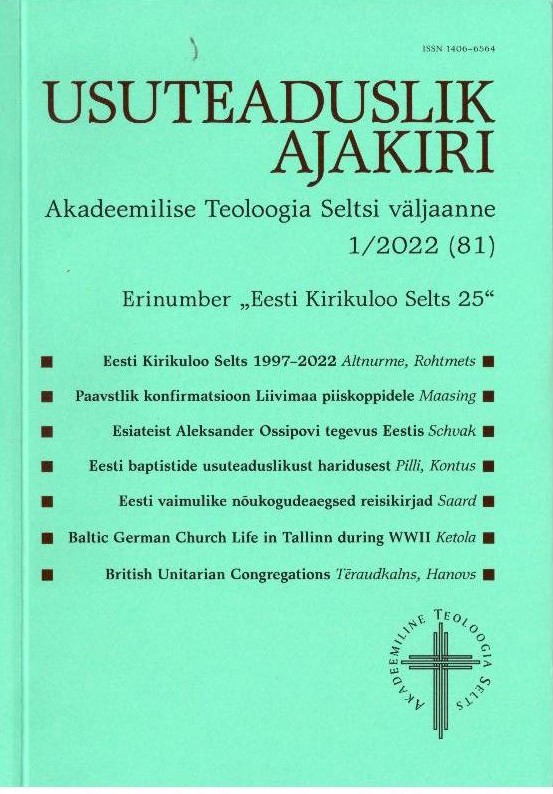Kui oluline oli paavstlik konfirmatsioon Liivimaa piiskoppidele 16. sajandil?
How Important Was Papal Confirmation to the Livonian Bishops in the 16th Century?
Author(s): Madis MaasingSubject(s): Christian Theology and Religion, History of Church(es), 16th Century
Published by: Akadeemiline Teoloogia Selts
Keywords: Reformation; bishops; papal confirmations; Livonia; Holy Roman Empire;
Summary/Abstract: During the first decades of the Reformation, papal confirmation, one of the most important sources of legitimation for episcopal authority, was often delayed in Livonian bishoprics, and stopped altogether in the middle of the1550s. To ascertain the possible reasons for this, the paper analyses factors that affected the rise of a bishop to his office and the role of confirmation in it. The situation in Livonia is compared with those German bishoprics, where the Reformation was also at least partially successful. It appears that confirmation was still viewed as a source of legitimation even for the bishops who themselves had strong Protestant convictions, as it was the precondition to obtaining Imperial regalia, i.e., the rights for secular power. Only when a Protestant princely dynasty achieved full control over a bishopric, did the confirmation become obsolete. In Livonia, no dynasty or other power was able to control bishoprics completely. The confirmations were mostly delayed because of financial problems and they stopped, not because of religious motivations, but because of political problems in and around Livonia.
Journal: Usuteaduslik Ajakiri
- Issue Year: 2022
- Issue No: 1 (81)
- Page Range: 27-66
- Page Count: 40
- Language: Estonian

